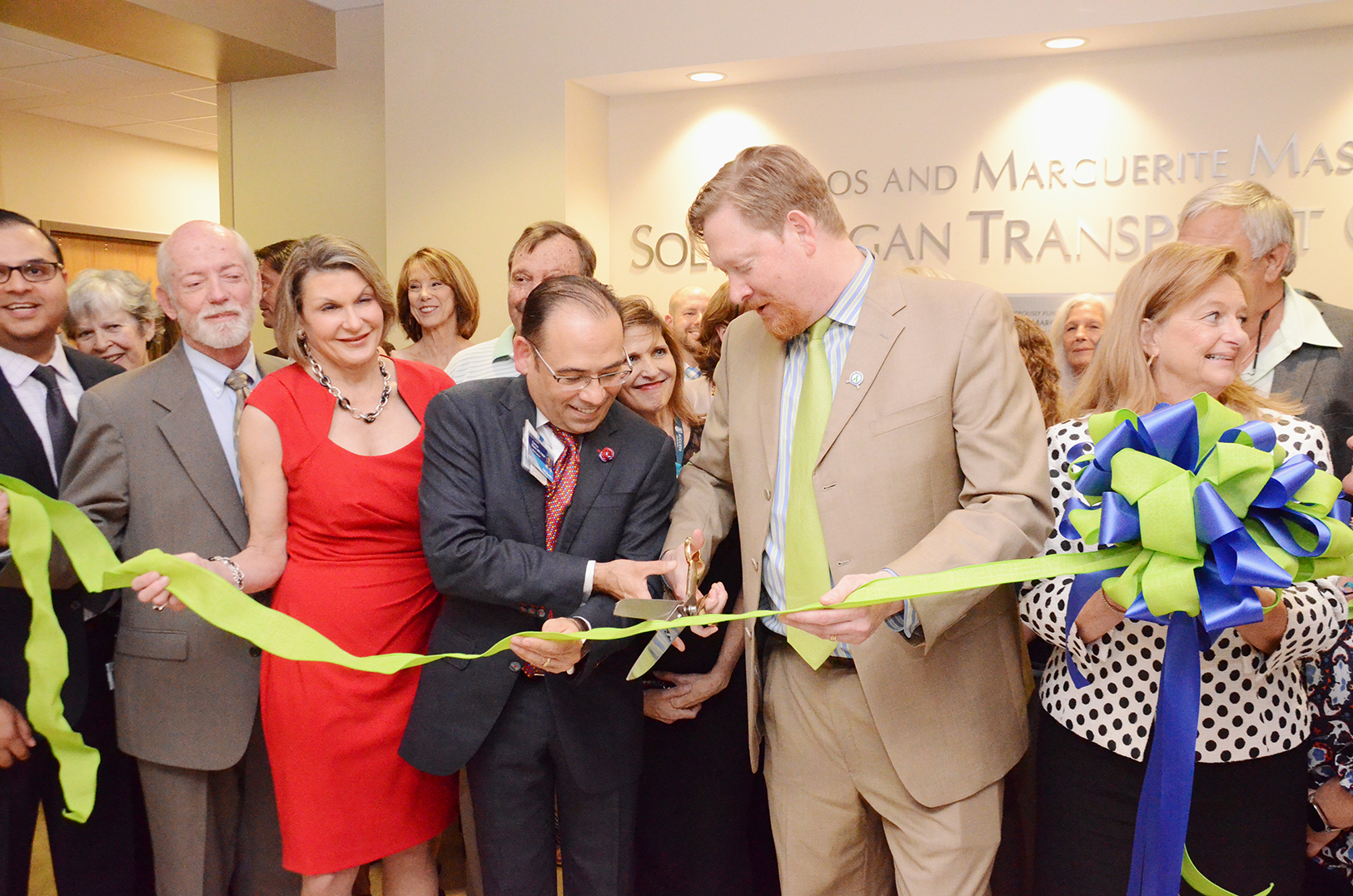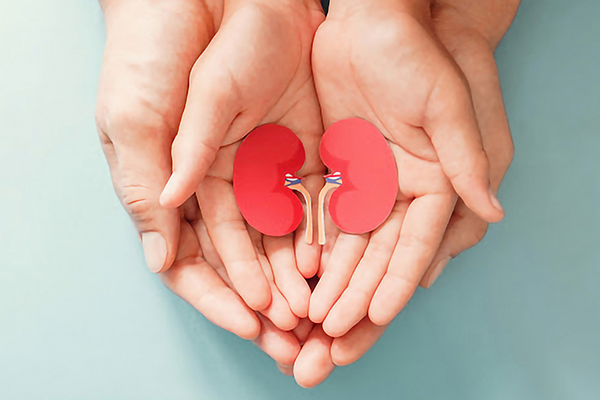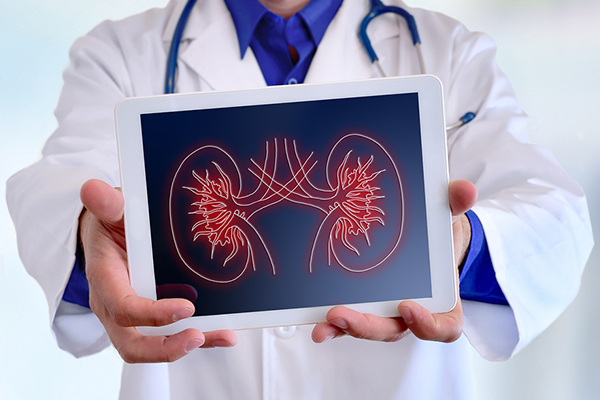The process of receiving an organ transplant can be a complex and daunting one. In order to provide patients with a more streamlined and comforting experience, Augusta University Health opened the new 14,000-square-foot Carlos and Marguerite Mason Solid Organ Transplant Center on April 27, 2017.
“The center is extremely patient-centered,” said Dr. Dr. Carlos Zayas assistant program director and medical director of the Transplant Program. “It merges into one place the many services that our transplant patients require, instead of having them navigate different appointments in multiple buildings across the campus.”
The new center accommodates clinical needs, consultations, lab services, infusions, cardiac echocardiograms, a medication assistance program and an education library. It was also built with patients and their families in mind.
“What’s great about the new transplant center is not only the interdisciplinary care provided in one clinical setting but also the totally transformed healing environment,” said Julie Ginn Moretz, assistant vice president of Patient- and Family-Centered Care and chief experience officer. “I am thrilled that patients and families were partners in co-designing the new transplant center. It features soothing, warm colors, with healing-inspired artwork by a local artist.
“Our patients and families are integral in helping us improve the care experience, which contributes to better clinical outcomes—that’s the bottom line,” she said. “It’s all part of or our Patient- and Family-Centered Care philosophy. We recognize that we are not just treating a person—we are caring for families, as well.”
The Carlos and Marguerite Mason Solid Organ Transplant Center will double the capacity for transplants and care at Augusta University, which has performed nearly 2,500 lifesaving kidney and pancreas transplants and has twice been named a national Kidney Transplant Center of Excellence by Healthgrades.
In addition to opening the new transplant center, AU Medical Center will be one of just 19 hospitals in the United States taking part in the Collaborative Improvement and Innovation Network project, a program that aims to improve kidney transplantation nationwide.




